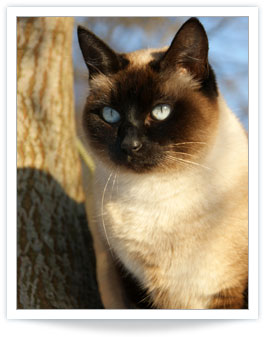Learn About the Facts that Contribute to this Common Thyroid Disorder in Cats
 Feline hyperthyroidism is a prevalent thyroid disorder in cats that requires understanding and proactive management. Feline hyperthyroidism causes an overproduction of thyroid hormones which disrupts the cat's metabolic balance. At Thyro-Cat hyperthyroid treatment facilities, we specialize in diagnosing and treating this condition to ensure your feline companion's health and well-being.
Feline hyperthyroidism is a prevalent thyroid disorder in cats that requires understanding and proactive management. Feline hyperthyroidism causes an overproduction of thyroid hormones which disrupts the cat's metabolic balance. At Thyro-Cat hyperthyroid treatment facilities, we specialize in diagnosing and treating this condition to ensure your feline companion's health and well-being.
1. Hormonal Imbalance
One of the primary causes of feline hyperthyroidism is a hormonal imbalance involving the thyroid gland. This gland, located in the neck, produces hormones that regulate metabolism. When the thyroid gland becomes overactive and produces excessive amounts of thyroid hormones (T4 and T3), it leads to hyperthyroidism. This condition is more common in older cats, typically over the age of 10.
2. Dietary Factors
Dietary influences have also been linked to feline hyperthyroidism causes. Some studies suggest that certain commercial cat foods containing high levels of iodine or specific additives may contribute to the development of thyroid disorders in susceptible cats. As specialists in hyperthyroid treatment, we emphasize the importance of a balanced diet tailored to your cat's individual needs to mitigate these risks.
3. Environmental Factors
Environmental factors, such as exposure to certain chemicals or pollutants, have been investigated as potential contributors to feline hyperthyroidism. Cats living in households with environmental contaminants or near industrial areas may face higher risks. Minimizing exposure to these substances and providing a safe living environment for your cat can help reduce these risks.
4. Genetic Predisposition
Genetics also play a role in feline hyperthyroidism. Some cat breeds, such as Siamese and Himalayan breeds, appear to have a higher predisposition to developing thyroid disorders compared to others. While genetics alone may not cause hyperthyroidism, they can increase the likelihood when combined with other factors.
Recognizing the Signs
Early detection is crucial for managing feline hyperthyroidism effectively. As a cat owner, it's essential to be aware of these common signs:
- Increased appetite
- Weight loss (despite eating more)
- Hyperactivity
- Excessive thirst
- Vomiting
If you notice any of these symptoms in your cat, it's essential to consult with a Thyro-Cat hyperthyroid treatment facility for proper diagnosis and treatment options as soon as possible. If left untreated, prolonged feline hyperthyroidism causes organ damage including the heart, kidneys, and gastrointestinal tract, potentially leading to more severe health issues.
Understanding the different feline hyperthyroidism causes is essential for providing your cat with the best possible care. At Thyro-Cat hyperthyroid treatment facilities, we are dedicated to diagnosing, treating, and managing this common thyroid disorder in cats. Contact us today at 866-467-8228 if you suspect your cat may be suffering from hyperthyroidism or for more information on how we can help support your cat's thyroid health.